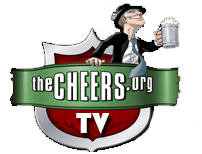Outsiders
This edition tells of the radicals in the political wilderness after World War II who saw the foundation of the Welfare State as the thin end of a totalitarian wedge. At first they were seen as cranks, but gradually they attracted supporters within the political mainstream. It was only when Margaret Thatcher became leader of the Conservative Party that they saw a champion.
The re-emergence of classical liberalism began with Antony Fisher, an old Etonian chicken farmer, who made a fortune by introducing battery cage farming into the UK. Fisher had lost his younger brother fighting against Nazi Germany in the Battle of Britain and was determined to use his fortune to combat what he saw as the totalitarian tendencies of the Labour Government's policies like nationalisation, price controls and the welfare state. Influenced by the Austrian economist Friedrich Hayek he established the Institute of Economic Affairs under the directorship of Ralph Harris.
Harris and his Research Director Arthur Seldon were both economists from working class backgrounds who had grown to support the free market. After being warned by Fisher that their task could take 20 years, they grew old together beavering away at their small Westminster office churning out a stream of pamphlets designed to influence academics, journalists and politicians to the view that the free market is the most efficient and liberal way to organise social affairs, and that government intervention is often wasteful. They were widely dismissed until 1964 when Edward Heath championed their policy in his abolition of price controls.
The Editor of The Times, William Rees-Mogg, sent Peter Jay to the U.S. as economic correspondent where he learned of the Monetarist theories of Milton Friedman. Enoch Powell became the champion of free market economics in British politics, fighting with Heath, a more centrist politician, for control of the party: he was the second biggest loser from Heath's election win, as it prevented Powell from taking control of the party.[2] Heath had attempted to reduce the power of the trade unions, but was eventually beaten by the strikers.
Following the February 1974 election defeat former Health Minister Keith Joseph turned against Heath and his neo-Keynesian policies to become a champion of free market economics but lost his position and influence following his controversial human stock speech. Joseph's close friend and ally Margaret Thatcher put herself forward as the free market candidate in the subsequent leadership election and won a surprising victory. Jay met with Thatcher at a dinner where he explained to her the Monetarist theories that she would subsequently adopt.
click here to see where to watch or .
Ready to Watch Tory Tory Tory, Season 1, Episode 1?

